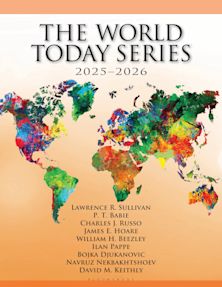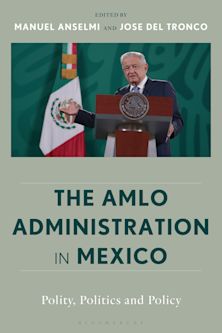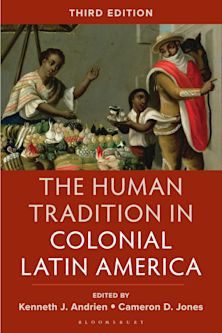- Home
- ACADEMIC
- History
- Latin American History
- Growth without Development
This product is usually dispatched within 1 week
- Delivery and returns info
-
Free CA delivery on orders $40 or over
You must sign in to add this item to your wishlist. Please sign in or create an account
Description
This book examines how some growing countries are experiencing economic development, while others are falling behind. It addresses the fundamental issues of development strategies by examining country-specific policies that have resulted in success or failure. The author focuses on Peru and makes comparisons with Chile and South Korea, exploring the question of why the latter two countries have been more successful, while Peru has lagged behind, despite bountiful natural resources and the potential to develop into a robust economy. The central question is to understand why some countries achieve economic development, while others face enormous challenges, and fail to do so.
Table of Contents
Chapter Two: Growth Without Development
Chapter Three: Chile and Peru: Close Neighbors, Distant Paths
Chapter Four: Extractive Versus Productive Economy
Chapter Five: Human Capital and Technology Deficiencies
Chapter Six: Conclusion
Product details
| Published | Nov 26 2018 |
|---|---|
| Format | Hardback |
| Edition | 1st |
| Extent | 156 |
| ISBN | 9781498550734 |
| Imprint | Lexington Books |
| Dimensions | 229 x 163 mm |
| Publisher | Bloomsbury Publishing |
About the contributors
Reviews
-
An informed analysis of growth, middle-income trap, and productivity in contemporary Peru with lessons for the developing world.
Marco Kimaya, UN-Habitat
-
Using Korea and Chile as counterexamples, Ruben Berrios asks the crucial question about Peru: why has it lacked behind in development? The book provides a fascinating political and economic analysis, helping to illuminate the importance of sound policies and the role of the state in generating economic progress.
Scott J. Morgenstern, University of Pittsburgh
-
Professor Berríos offers a welcome addition to the political-economy literature with an extremely timely and valuable comparative analysis of Latin America and Asia. The cases of Peru, South Korea, and Chile reveal that good governance and effective political leadership are as important to development as economic growth. Policymakers and scholars alike will find important lessons in this book.
Julio F. Carrión, University of Delaware



































